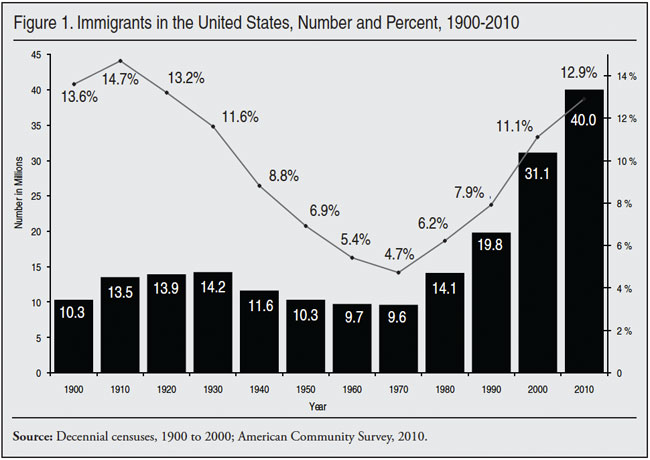One of the great questions about the 2012
campaign has been “Where was the tea party?” They were not the fierce
force they’d been in the 2010 cycle, when Republicans took back the
House. Some of us think the answer to the question is: “Targeted by the
IRS, buried under paperwork and unable to raise money.”
The economist Stan Veuger, on the
American Enterprise Institute‘s blog, takes the question a step further.
The Democrats had been badly shaken by the Republican comeback of
2010. They feared a repeat in 2012 that would lose them the White
House.
Might targeting the tea-party groups—diverting them, keeping them
from forming and operating—seem a shrewd campaign strategy in the years
between 2010 and 2012? Sure. Underhanded and illegal, but potentially
effective.
Veuger writes: “It is a well-known fact that the Tea Party movement
dealt the president his famous “shellacking” in the 2010 midterm
election. Less well-known is the actual number of votes this new
movement delivered—and the continuing effects these votes could have had
in 2012 had the movement not been demobilized by the IRS.”
The research paper Veurger and his colleagues have put out notes
that, in Veuger’s words, “the Tea Party movement’s huge success [in
2010] was not the result of a few days of work by an elected official or
two, but involved activists all over the country who spent the year and
a half leading up to the midterm elections volunteering, organizing,
donating, and rallying. Much of these grassroots activities were
centered around 501(c)4s, which according to our research were an
important component of the Tea Party movement and its rise.”
More: “The bottom line is that the Tea Party movement, when properly
activated, can generate a huge number of votes—more votes in 2010, in
fact, than the vote advantage Obama held over Romney in 2012. The data
show that had the Tea Party groups continued to grow at the pace seen in
2009 and 2010, and had their effect on the 2012 vote been similar to
that seen in 2010, they would have brought the Republican Party as many
as 5-8.5 million votes compared to Obama’s victory margin of 5 million.”
Think about the sheer political facts of the president’s 2012
victory. The first thing we learned, in the weeks after the voting, was
that the Obama campaign was operating with a huge edge in its
technological operation—its vast digital capability and sophistication.
The second thing we learned, in the past month, is that while the
campaign was on, the president’s fiercest foes, in the Tea Party, were
being thwarted, diverted and stopped.
Technological savvy plus IRS corruption. The president’s victory now
looks colder, more sordid, than it did. Which is why our editor,
James Taranto, calls him “President Asterisk.”
The controversy over the IRS's harassment of conservative groups
continues. President Obama's team continues to blame low-level
bureaucrats. Some conservatives suspect a more sinister explanation: that
the levers of government were used to attack an existential threat to the
president's 2012 reelection. The president and his party dismiss this as a
paranoid fantasy. The evidence, however, is enough to make one believe that
targeting Tea Party groups would have been an effective campaign strategy
going into the 2012 election cycle.
It is a well-known fact that the Tea Party movement dealt the president his
famous "shellacking" in the 2010 midterm election. Less well-known is the
actual number of votes this new movement delivered — and the continuing
effects these votes could have had in 2012 had the movement not been
demobilized by the IRS.
In a new research paper, Andreas Madestam (from Stockholm University),
Daniel Shoag and David Yanagizawa-Drott (both from the Harvard Kennedy
School), and I set out to find out how much impact the Tea Party had on voter
turnout in the 2010 election. We compared areas with high levels of Tea Party
The bottom
line is that the
Tea Party
movement,
when properly
activated, can
generate a
huge number
of votes-more
votes in 2010,
in fact, than
the vote
advantage
Obama held
over Romney in 2012.
-Stan Veuger
activity to otherwise similar areas with low levels of Tea Party activity, using
data from the Census Bureau, the FEC, news reports, and a variety of other
sources. We found that the effect was huge: the movement brought the
Republican Party some 3 million-6 million additional votes in House races.
That is an astonishing boost, given that all Republican House candidates
combined received fewer than 45 million votes. It demonstrates conclusively
how important the party's newly energized base was to its landslide victory in
those elections, and how worried Democratic strategists must have been
about the conservative movement's momentum.
The Tea Party movement's huge success was not the result of a few days of
work by an elected official or two, but involved activists all over the country
who spent the year and a half leading up to the midterm elections
volunteering, organizing, donating, and rallying. Much of these grassroots
activities were centered around 501(c)4s, which according to our research
were an important component of the Tea Party movement and its rise.
The bottom line is that the Tea Party movement, when properly activated, can
generate a huge number of votes-more votes in 2010, in fact, than the vote
advantage Obama held over Romney in 2012. The data show that had the
Tea Party groups continued to grow at the pace seen in 2009 and 2010, and
had their effect on the 2012 vote been similar to that seen in 2010, they
would have brought the Republican Party as many as 5 - 8.5 million votes
compared to Obama's victory margin of 5 million.
President Obama's margin of victory in some
of the key swing states was fairly small: a
mere 75,000 votes separated the two
contenders in Florida, for example. That is
less than 25% of our estimate of what the
Tea Party's impact in Florida was in 2010.
Looking forward to 2012 in 2010
undermining the Tea Party's efforts there
must have seemed quite appealing indeed.
Unfortunately for Republicans, the IRS
slowed Tea Party growth before the 2012
election. In March 2010, the IRS decided to
single Tea Party groups out for special
treatment when applying for tax-exempt
status by flagging organizations with names
containing "Tea Party," "patriot," or "9/12."
For the next two years, the IRS approved the
applications of only four such groups,
delaying all others while subjecting the
applicants to highly intrusive, intimidating
requests for information regarding their
activities, membership, contacts, Facebook
posts, and private thoughts.
As a consequence, the founders, members,
and donors of new Tea Party groups found themselves incapable of
exercising their constitutional rights, and the Tea Party's impact was muted in the 2012 election cycle. As Toby Marie Walker, who runs the Waco Tea Party,
which filed for tax-exempt status in 2010 but didn't receive approval until two
months ago, recounted recently: "Our donors dried up. It was intimidating and
time-consuming." The Richmond Tea Party went through a similar ordeal,
and was only granted tax-exempt status in December, right after the
election--three years after its initial request. Its chairman explained the
consequences: the episode cost the Richmond Tea Party $17,000 in legal
fees and swallowed time the all-volunteer network would have devoted to
voter turnout, outreach in black and Latino neighborhoods and other events
to highlight the constitution and "the concept of liberty."
It might be purely accidental that the government targeted precisely this
biggest threat to the president. It may just be that a bureaucracy dominated
by liberals picked up on not-so-subtle dog whistles from its political
leadership. Or, it might be that direct orders were given. In any case, it
doesn't take a conspiracy theorist to note that the president's team was
competent enough to recognize the threat from the Tea Party and take it
seriously. The Obama campaign has made no secret of its efforts to
revolutionize turnout models for the most recent campaign. Its remarkable
competence turning out its own voters has been widely discussed, and it
seems quite plausible that efforts to suppress the Republican vote would
have been equally sophisticated.
We may never know to what exact extent the federal government diverted
votes from Governor Romney and thus, how much it influenced the course of
a presidential election in the world's oldest democracy. At the very least,
however, Americans of all political persuasions can be forgiven for a little
cynicism when the president has the nerve to say, as he did on May 5th in his
commencement address to graduates of the Ohio State University: "You've
grown up hearing voices that incessantly warn of government as nothing
more than some separate, sinister entity that's at the root of all our problems.
You should reject these voices." And that cynicism, that lack of trust in the
country's governing institutions, becomes harmful quite easily: when the
people are asked to have faith in the NSA's efforts to protect the nation from
terrorist threats, for example.
Stan Veuger is an economist at the American Enterprise Institute.

